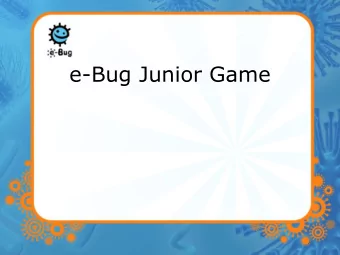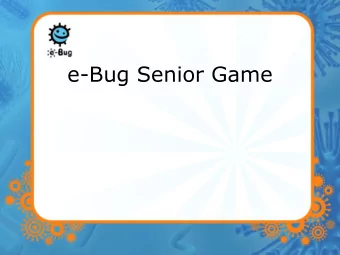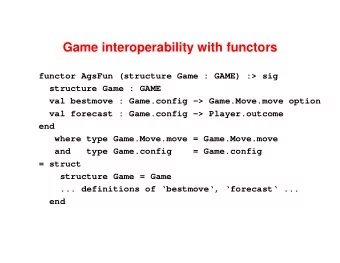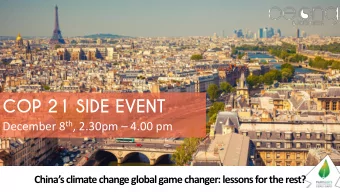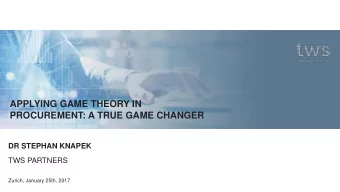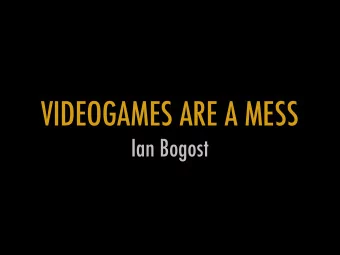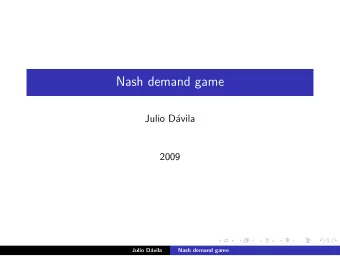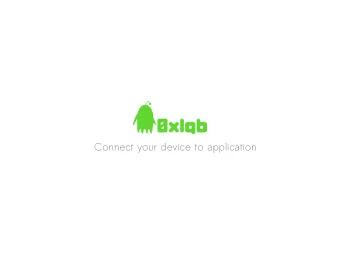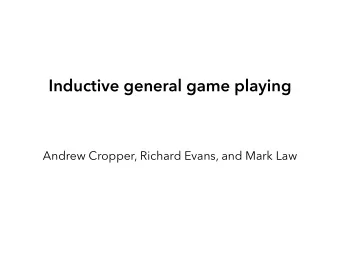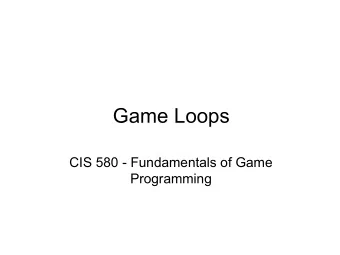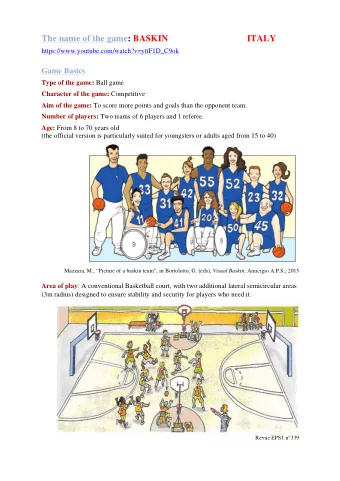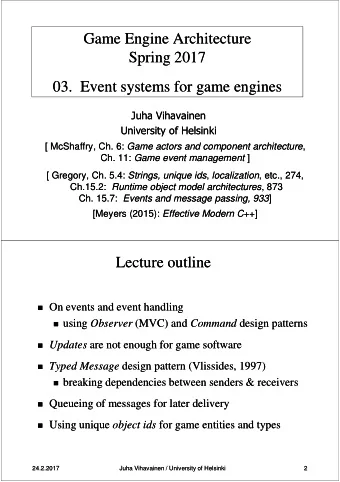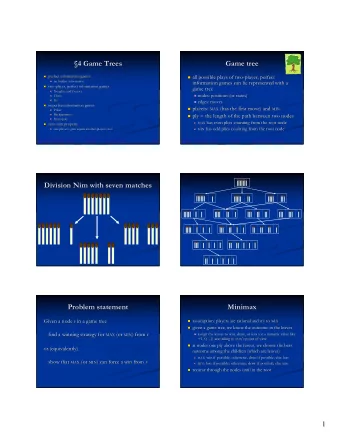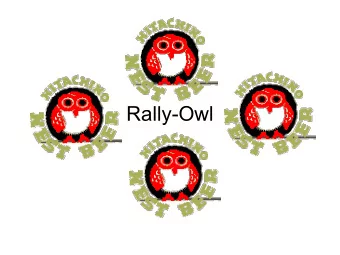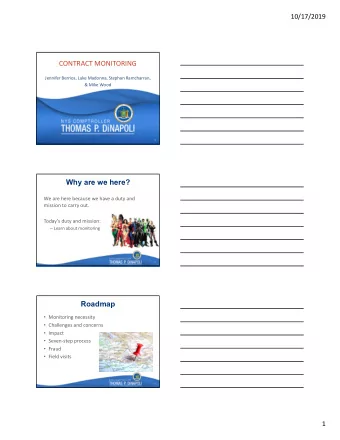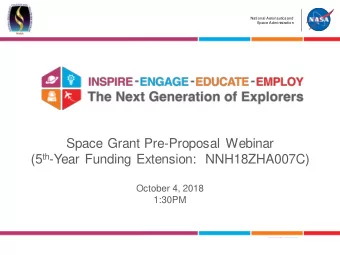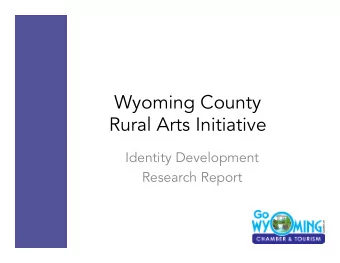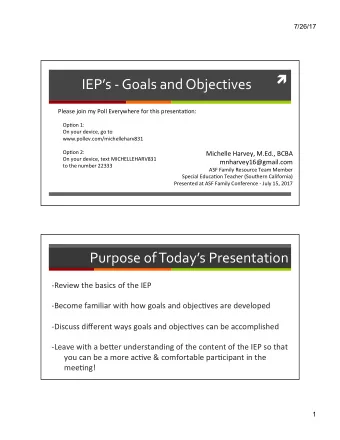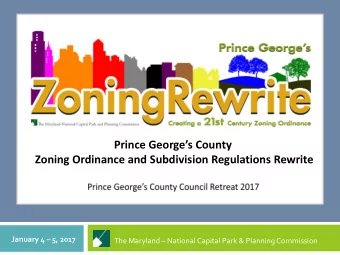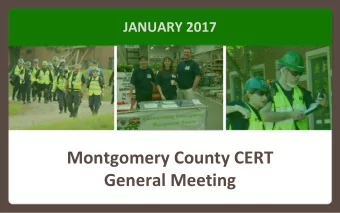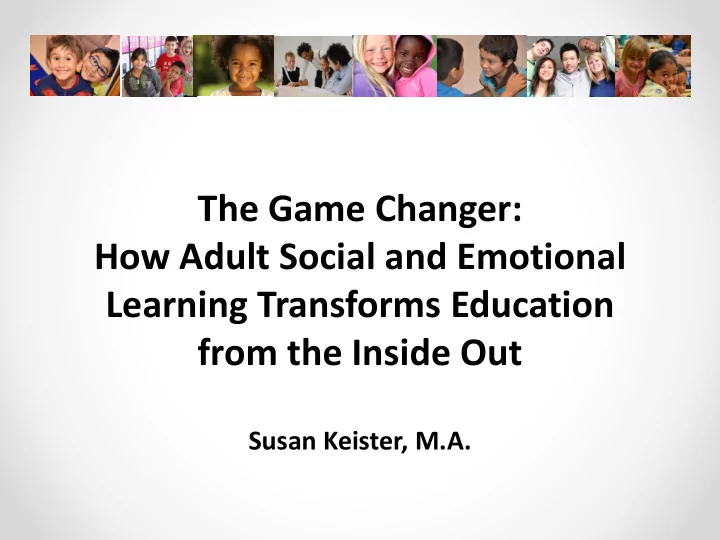
The Game Changer: How Adult Social and Emotional Learning - PowerPoint PPT Presentation
The Game Changer: How Adult Social and Emotional Learning Transforms Education from the Inside Out Susan Keister, M.A. Today, we will Learn about CASELS Five Core Social and Emotional Learning (SEL)
The Game Changer: How Adult Social and Emotional Learning Transforms Education from the Inside Out Susan Keister, M.A.
Today, we will • Learn about CASEL’S Five Core Social and Emotional Learning (SEL) Competenciehttps://i.pinimg.com/564x/e2/ac/be/e2acbe91284 872a24a86dadcedf330a3.jpgs and the research that supports them as a foundation for high quality education and wellness. • Become acquainted with elements of systemic implementation of SEL in districts and schools. • Identify and apply best practices related to mental health and SEL to support school districts and schools when creating and sustaining health school environments. • Learn about specific tools to cultivate Adult SEL , such as fostering personal skillfulness, mindfulness and self-regulation, restorative practices, and deep relationships with colleagues and students.
Today, we will • Learn about CASEL’S Five Core Social and Emotional Learning (SEL) Competenciehttps://i.pinimg.com/564x/e2/ac/be/e2acbe91284 872a24a86dadcedf330a3.jpgs and the research that supports them as a foundation for high quality education and wellness. • Become acquainted with elements of systemic implementation of SEL in districts and schools. • Identify and apply best practices related to mental health and SEL to support school districts and schools when creating and sustaining health school environments. • Learn about specific tools to cultivate Adult SEL , such as fostering personal skillfulness, mindfulness and self-regulation, restorative practices, and deep relationships with colleagues and students.
Today, we will • Learn about CASEL’S Five Core Social and Emotional Learning (SEL) Competencies and the research that supports them as a foundation for high quality education and wellness. • Become acquainted with elements of systemic implementation of SEL in districts and schools. • Identify and apply best practices related to mental health and SEL to support school districts and schools when creating and sustaining health school environments. • Learn about specific tools to cultivate Adult SEL , such as using the Three Signature Practices and fostering personal skillfulness, mindfulness and self-regulation, restorative practices, and deep relationships with colleagues and students.
Activity Turn to a neighbor and recall a principal, administrator, teacher, counselor, coach, or adult in school who took an interest in your and showed you that they got who you are. Who was that educator? Say their name into the room and share what they did that made you feel seen, heard, known, valued, and perhaps even loved.
• District Administrators Who is • State Department of in the Education • State Department of Room? Health • Higher Education • Health and Wellness Directors and Coordinators • Teachers • Counselors • School Nurses and Psycologists • Other
3 Signature Practices for SEL Welcoming rituals that promote activities for inclusion. • Greetings and check-ins • Community building exercises • Staff meetings Engaging practices that provide adult learners with opportunities for sense- making and “brain breaks.” • Circle practice • Inquiry-based prompts, turn and talk • Collaborative, cooperative activities • Stand and stretch, movement, music Optimistic closure that offers time for reflections and looking forward. • Something I learned today • Something I felt or thought about the topic • Something I look forward to applying
Working Agreements • Be present • Have an open mind • Make connections • Stay engaged • Be active listeners • Encourage full participation of all members • Respond to the Quiet Signal (e.g. chime, raised hand) • Turn cell phones off or on vibrate
Photo Mingle! 1. Walk around the room. When you hear the bell, find a partner and introduce yourself. 2. Person 1: Share a photo from your phone that has meaning for you. 3. Person 2: When you hear the bell, it’s your turn to share a photo. 4. When the bell rings a third time, find a new partner.
No one cares how much you know until they know how much you care!
Students and adults are at their best relationships where they feel seen, heard, known, valued, and loved.
A GAME CHANGER is ADULT SEL!
Social and Emotional Learning educates the heart as well as the head! 13
1961 - 2019 The Power of One Let me begin with the story of Chris Collaros, a friend and beloved principal who transformed his school through his love, courage, values, sense of fun, and 100% commitment to making every school community member feel seen, heard, known, and valued. 14
15
Wickliffe School Guidelines We create a community filled with kindness every single day. We listen to each other…the Wickliffe Way...with our eyes, our ears, and our hearts to show compassion to one another. We learn from and with each other…with endless joy and curiosity. And we honor and embrace our differences...the color of your skin...the way we express your gender...the different ways we learn...the faith traditions that guide us…because celebrating diversity is a hallmark of being a Wickliffe Wolf. We have the courage to do what’s right. And we learn how to disagree with each other with respect and civility. We Love Out Loud, every day, with everyone we meet. Love is all there is.
1961 - 2019 d. 17
1961 - 2019 The Power of One Let me begin with the story of Chris Collaros, a beloved principal who transformed his school through his love, courage, values, sense of fun, and 100% commitment to making every school community member feel seen, heard, known, and valued. 18
Activity Turn to a neighbor and recall a principal, administrator, teacher, counselor, coach, or adult in school who took an interest in you and showed you that they saw the special soul that you are. Who was that educator? Say their name into the room and share what they did that made you feel seen, heard, known, valued, and perhaps even loved.
What is Social and Emotional Learning?
Focusing Activity • Turn to a partner. • Take two minutes total to share your reflections on the following: What comes to mind when you hear the words “social and emotional learning”? Why is it important to our work? 21
SEL is… The process through which children and adults acquire and effectively apply the knowledge, attitudes, and skills necessary to understand and manage emotions, set and achieve positive goals, feel and show empathy for others, establish and maintain positive relationships, and make responsible decisions.
“Five Keys to Successful SEL” https://www.youtube.com/watch?v=DqNn9qWoO1M As you watch this video, think about the following: • What do you see students doing? • What do adults say about SEL? • How would SEL look in your school?
Social and Emotional Learning (SEL) • Impulse control • Stress management • Identifying emotions • Self-discipline • Self-perception/Identity • Self-motivation • Recognizing strengths • Perseverance • Sense of self-confidence • Goal-setting • Self-efficacy • Organizational skills SELF- SELF- AWARENESS MANAGEMENT • Perspective-taking Social and • Empathy Emotional SOCIAL Learning RESPONSIBLE • Appreciating diversity AWARENESS (SEL) DECISION- • Respect for others MAKING • Identifying problems RELATIONSHIP SKILLS • Analyzing situations • Solving problems • Communication • Evaluating • Social engagement • Reflecting • Building relationships • Ethical responsibility • Working cooperatively • Resolving conflicts • Helping/Seeking help
Three Levels of SEL Implementation SELF- SELF- AWARENESS MANAGEMENT SEL CURRICULUM & Social and Emotional INSTRUCTION Learning RESPONSIBLE SOCIAL (SEL) DECISION- AWARENESS MAKING RELATIONSHIP SKILLS
SEL Impacts Academic and Behavioral Instructional
What does a systemic approach to Social and Emotional Learning look like in schools?
Systemic Schoolwide SEL Roadmap
What does it look like when a school achieves schoolwide SEL?
What does the research say?
SEL Works: Compelling National Evidence Science Links SEL to Student Gains: • Better social-emotional skills • Fewer conduct problems • Improved attitudes about self, . • Less emotional stress others, and school • Lower drug use • Positive classroom behavior • 11 percentile-point gain on standardized achievement tests …and adults benefit too Statistically significant Teachers who possess social and associations between measured emotional competencies are more social-emotional skills in likely to stay in the classroom kindergarten and key young adult longer because they’re able to work outcomes across multiple more effectively with challenging domains of education, students — one of the main causes employment, criminal activity, of burnout. substance use, and mental health .
Recommend
More recommend
Explore More Topics
Stay informed with curated content and fresh updates.
